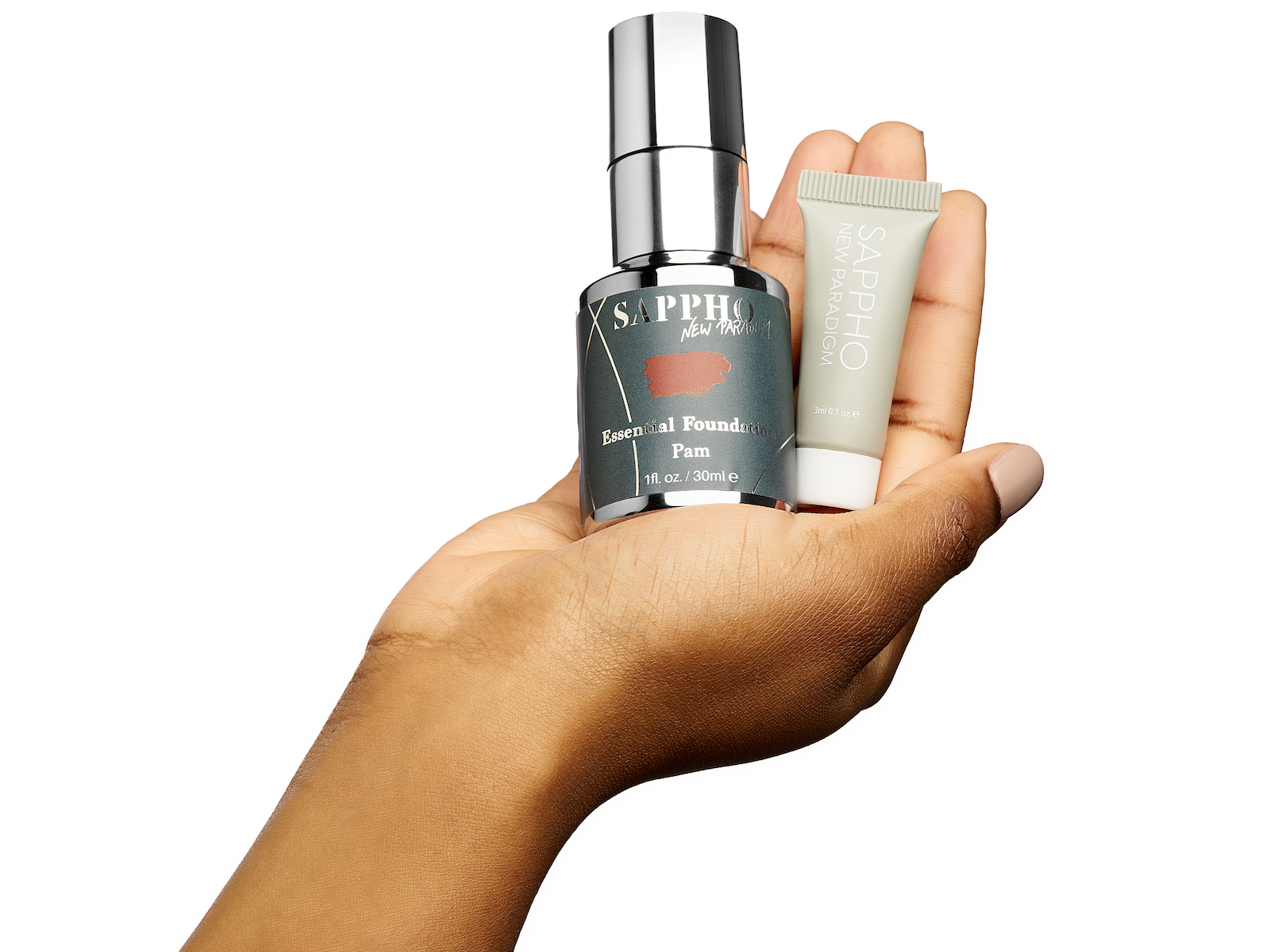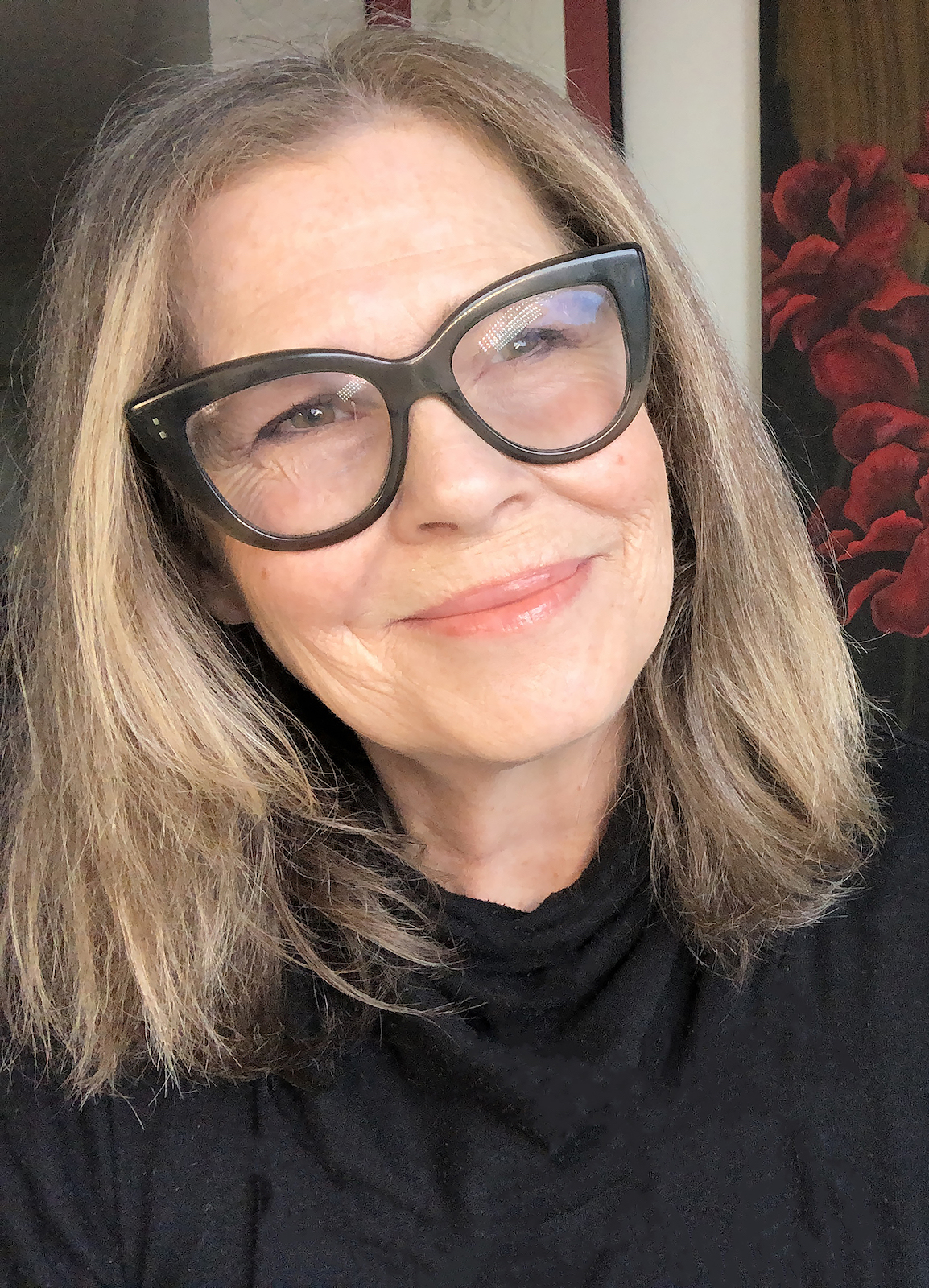It was Mia Kirshner who lit the spark for makeup artist JoAnn Fowler. Sitting in the makeup chair for The L Word, the Canadian actor told Fowler she was no longer willing to put anything on her skin that contained parabens. Fowler had never heard of the synthetic preservative. Kirshner filled her in on how the European Union had banned hundreds of substances from use in products such as cosmetics, many of which were still allowed in North America.
Fowler wanted to know more. She contacted friend and fellow celebrity makeup artist Norma Patton-Lowin, who recommended the book Not Just a Pretty Face: The Ugly Side of the Beauty Industry by Stacy Malkan. “The first paragraph changed my life,” Fowler says. “How we’re taking all this stuff in through our environments or clothes or what we put on our hair.”
What she learned inspired an entire makeup line that now includes everything from foundation and bronzer to eyeshadows, brow pomades, and lip glosses—all vegan, cruelty-free, organic, and as sustainable as possible. Fowler’s voice competes with a rising crescendo of chatter in a busy Yaletown cafe as we discuss the challenges inherent in starting her own cosmetics company, Sappho: New Paradigm. “Your skin is your biggest organ,” she explains, looking at me intently through thick-rimmed glasses. “If you have clean products, you are actually supporting health and not disease.”
The bulk of Fowler’s career has been spent as a professional makeup artist—Emmy-nominated at that. She discovered the power of cosmetics thanks to another seminal figure. “I was the fat kid that loved Twiggy,” she says with a wry smile. Even though she describes herself as the antithesis of the rail-thin ’60s model, she learned that makeup could help her emulate one of Twiggy’s defining features: “I read one day that you could use brown in the crease of your eyes and make your eyes appear bigger.”
“We need the real information, not the marketing.”
That visual sleight of hand drew her to makeup artistry, although it would be years before she realized it was even a profession. In her 20s, she took the leap and changed careers from childcare counselling. A few makeup artistry courses later, she was working on TV and movie sets in Vancouver—and didn’t leave for nearly 30 years.
Fowler speaks with the confidence of someone who has spent countless hours informally studying the chemistry of her craft. Scribbling notes, I attempt to keep up as she references molecules and parts per million. In hindsight, a quick refresher course on PFAS (pronounced pee-fas) would have been handy. The acronym stands for per- and polyfluoroalkyl substances, and if it doesn’t ring a bell then “forever chemicals” might. In short, PFAS are carbon atoms bonded to fluorine atoms, but there are thousands of variations on this simple structure—Teflon is one, and Scotchguard is another. Those are just two of thousands.

“Fourteen thousand and counting,” says Fowler. “It’s like dressing up a Barbie doll: put another outfit on it and call it something else.” They are everywhere—in the food we eat, clothes we wear, cleansers we lather-rinse-repeat with, and everything in between. They’re found in polar bears, flamingos, and Antarctic snow. The connection to health problems, although well known, is still being studied, but the short list includes cancer, endocrine disruption, low birth weights, liver disease, and high cholesterol.
Armed with that information, Fowler began putting together her own products. “That’s how I started the business,” she says. “I started to use makeup in my own trailer.” Demand grew. And although her business is built on a cosmetics-with-a-conscience foundation, that was never the plan. “I didn’t start a business—this thing happened to me,” she says. “I wanted to have a line in my trailer that I could use. I could offer people a choice…. It was very selfish, in a way, because I didn’t want to take part in anyone else getting cancer.”
In Fowler’s opinion, such scruples are rare in the beauty industry. Too often, transparency and customer safety take a back seat to revenue. “We need the real information, not the marketing,” she says. And she has strong words for her industry, which predominantly markets to women and has little regulation: “It’s all just using women as guinea pigs.”
Her products and brand push back against that idea. That’s why all of Sappho’s formulations, along with the products’ packaging, are tested for PFAS. Not long ago, the numbers started coming back higher than expected. “Our shadows, our blushes. Anything with mica in it. So we started working with BCIT. I reached out to an ecological professor there, and I said, ‘Can you help us?’” Now Fowler works with the technical institute to develop testing for organic fluorine, as no such testing exists yet in Canada. In the meantime, she sends her products to the USA to be tested, which adds to the expense. “But we really need to do it, because really, we can mitigate these things.”
“The philosophy of our company is we get greener as we grow.”
That ability to pivot and adjust based on changing information has been key to Sappho’s evolution. It wasn’t until the company’s second line of products that vegan ingredients became a focus. Even the packaging has evolved from plastic to more earth-friendly materials, such as paper compacts, glass bottles, and BioSphere plastic that biodegrades in two to five years. “The philosophy of our company is we get greener as we grow. Every time we make a new decision or we invest in something, we look to tick as many of those boxes as we can: of sustainability, of recyclability, of reusability, of PFAS-free and vegan.”
The brand already has a full line of products, but the ones that make Fowler most excited still lie in the future. In particular, “the foundation that I haven’t made yet,” she says with a laugh. Her runner-up is the Maximum Intensity Refillable Mascara, which can be swapped out for a new tube that pops into the metal holster. “To have a vegan mascara that actually works was really, really and truly a game changer,” she says. Plus, it checks a lot of boxes. “The refillability of it is not the end answer to zero waste, but it’s on its way.”
It all comes back to change—and the beauty industry is ripe for it. “I’m here for the revolution,” Fowler says. In her view, makeup and cosmetics can, and should, be serious—and ethical. After all, wearing things that make us look and feel good is part of human nature. “The thing about makeup is we love to adorn ourselves. We should be able to do it safely.”
Read more stories about beauty.









